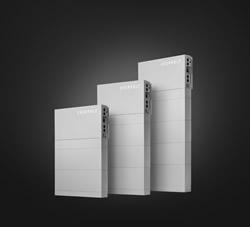Scripps Vessel Proves Viability of Renewable Fuel on 14,400-Mile Voyage
Maintenance and Lubrication of Wind Turbines
SolarCity pushing industry to 40% increase in useful lifetime of solar power installations
New Ride: Today's Business Goes Up, Down and Around at Thrilling Speeds
Here's How Brexit May End Most British Wind Power
Tesla applies for 6 new trademarks to sell solar energy under the 'Tesla' brand
Super Battery Technology
New SMART Wind Roadmap Aims to Expand U.S. Wind Turbine Manufacturers' Reach
Net Metring Scenario in Pakistan
BMW electric-car batteries to be used as home energy-storage devices
What is the Deep Decarbonization Pathway Project?
IKEA of energy delivers clean, green solar power-plant in a box
Missouri is about to experiment with power from an unlikely source - its roads
Are Microgrids Catching On?
24M's Batteries Could Better Harness Wind and Solar Power
Records 2191 to 2205 of 5043
First | Previous | Next | Last
Featured Product

